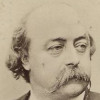“ Beauty lives not for the self-glorification of the priests of any art, but for the enjoyment of priests and laity alike. He is the best art-priest who brings most beauty most home to the hearts of most men. If any one tells an artist that part of what he has brought home is not his but another’s, “Yea, let him take all,” should be his answer. He should know no self in the matter. ”
Samuel Butler, The Note-Books of Samuel Butler (1912). copy citation
| Author | Samuel Butler |
|---|---|
| Source | The Note-Books of Samuel Butler |
| Topic | enjoyment beauty |
| Date | 1912 |
| Language | English |
| Reference | |
| Note | |
| Weblink | http://www.gutenberg.org/files/6173/6173-h/6173-h.htm |
Context
“If this rule were sanctioned, he who first produced anything beautiful would sign its death warrant for an earlier or later date, or at best would tether that which should forthwith begin putting girdles round the world.
Beauty lives not for the self-glorification of the priests of any art, but for the enjoyment of priests and laity alike. He is the best art-priest who brings most beauty most home to the hearts of most men. If any one tells an artist that part of what he has brought home is not his but another’s, “Yea, let him take all,” should be his answer. He should know no self in the matter. He is a fisher of men’s hearts from love of winning them, and baits his hook with what will best take them without much heed where he gets it from. He can gain nothing by offering people what they know or ought to know already, he will not therefore take from the living or lately dead;”
source



